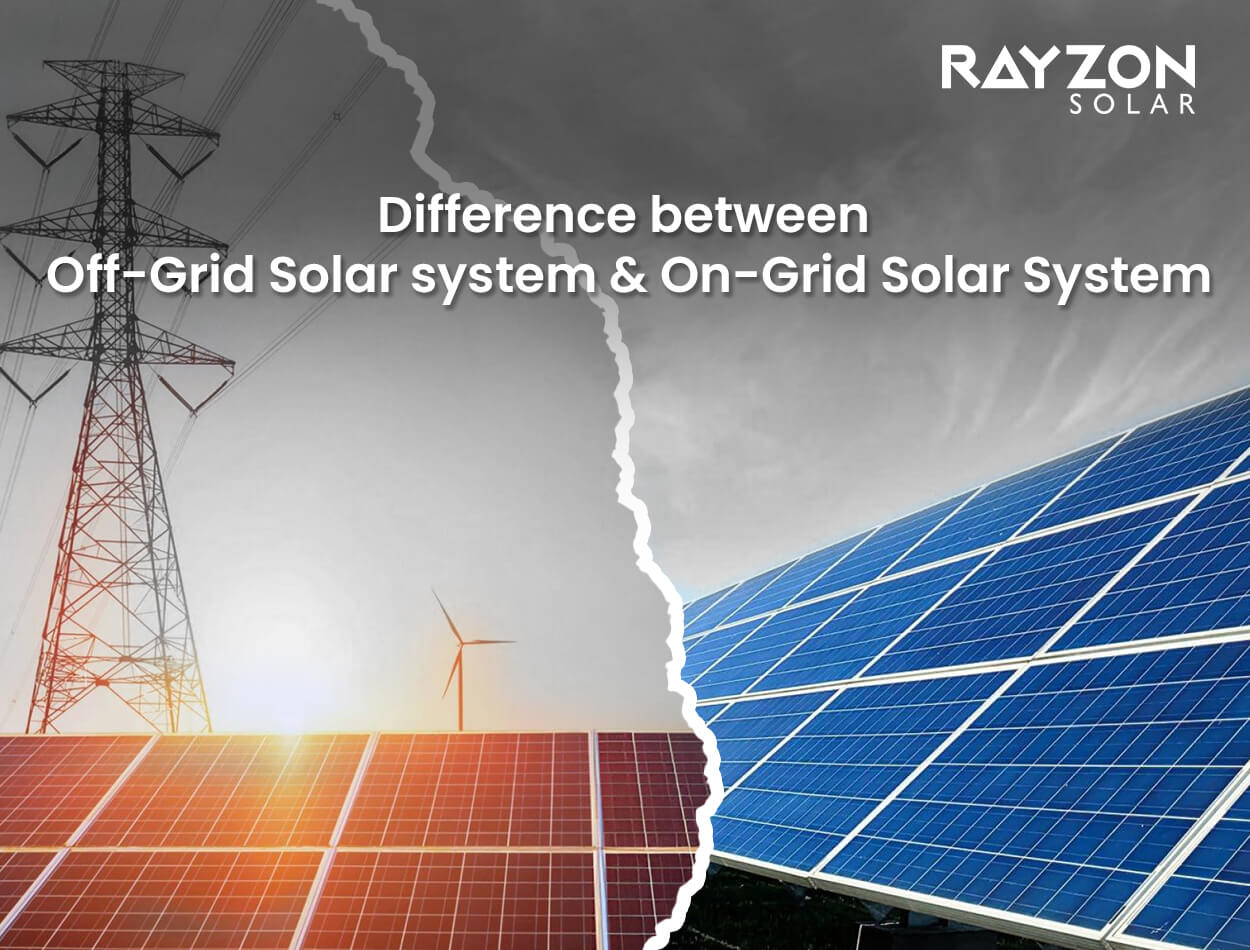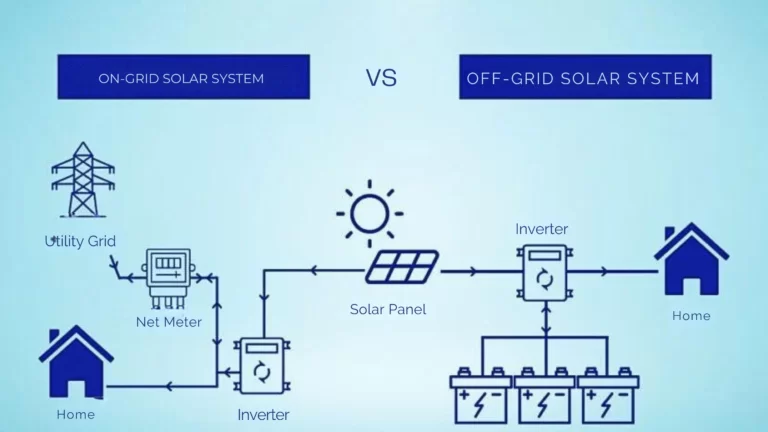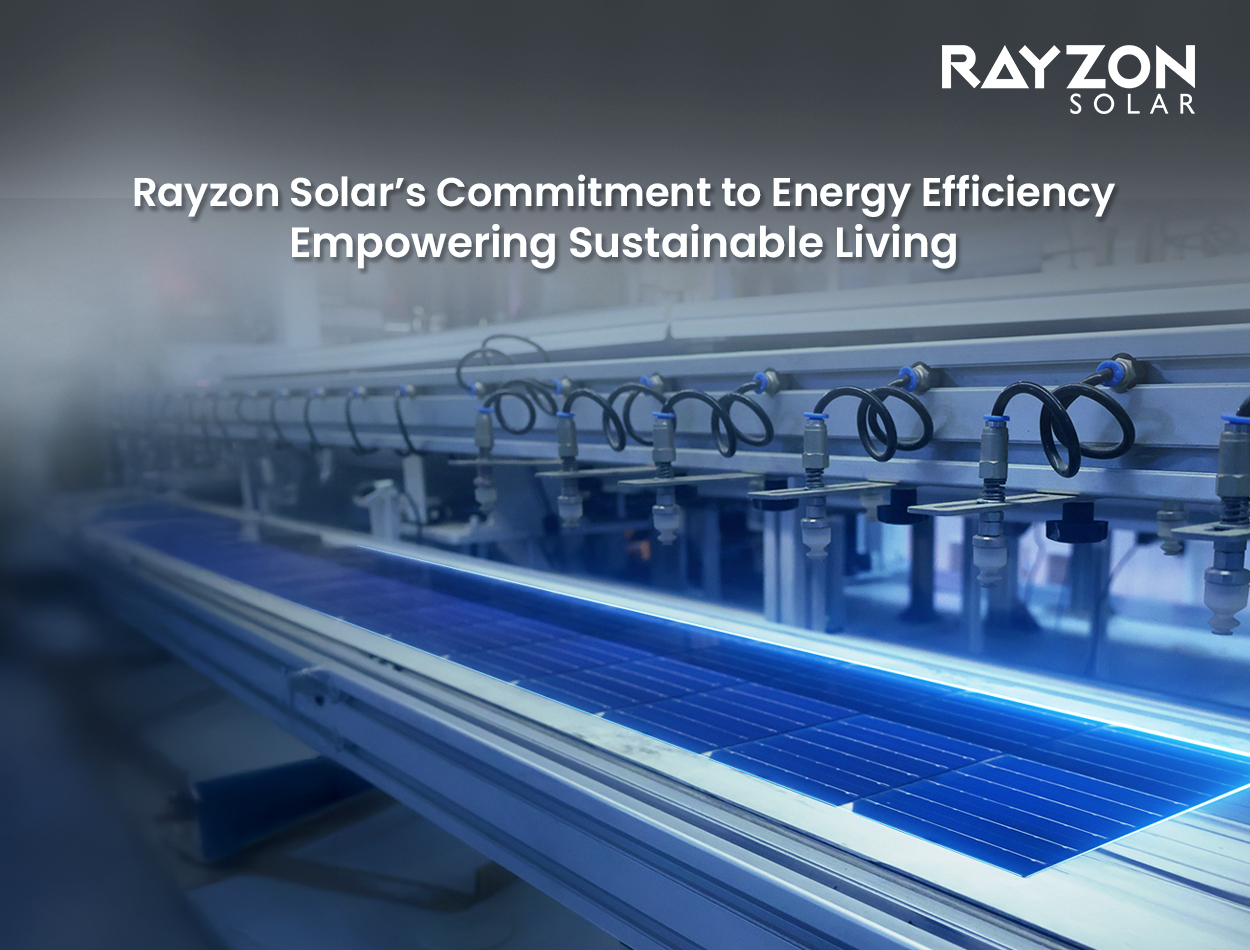
Difference between Off-Grid Solar system and On-Grid Solar System
In recent years, the adoption of solar energy has gained significant traction as a sustainable and cost-effective solution for electricity generation. With advancements in solar technology and the increasing emphasis on renewable energy sources, more individuals and businesses are turning to solar systems to meet their energy needs. When considering solar energy solutions, it's essential to understand the key differences between off-grid solar systems and on-grid solar systems. we will explore the distinctions between these two types of solar systems, their benefits, and which option might be best for you.
Understanding Solar Energy Systems
the differences between off-grid and on-grid solar systems, let's consider what a solar system consists of A Solar system comprises solar panels, inverters, and other components that convert sunlight into usable electricity. Solar panels are designed to capture sunlight and convert it into direct current (DC) electricity. This electricity is then converted into alternating current (AC) by an inverter, making it suitable for powering homes and businesses.
Off-Grid Solar Systems
As the name suggests, an off-grid solar system is not connected to the public electricity grid. Instead, it operates independently, trusting only solar energy and battery storage systems. Here are some key faces of off-grid solar systems:
1. Independence from the Grid: Off-grid systems provide complete energy independence. They are ideal for remote locations where access to the utility grid is limited or unavailable.
2. Battery Storage: Since there is no grid connection, off-grid systems typically include battery storage to store excess energy generated during sunny periods for use during cloudy days or at night.
3. Higher Initial Costs: Off-grid systems tend to have higher upfront costs due to the need for batteries and additional components. However, they can provide long-term savings by eliminating electricity bills.
4. Reliability: Off-grid systems are highly reliable in areas with consistent sunlight. However, they require careful planning and sizing to ensure sufficient energy supply during periods of low sunlight.
On-Grid Solar Systems
On-grid solar systems, also known as grid-tied or grid-connected systems, are linked to the public electricity grid. These systems offer a different set of advantages and considerations:
1. Grid Connection: On-grid systems are connected to the local utility grid, allowing users to draw electricity from the grid when solar production is insufficient and feed excess energy back to the grid when production exceeds consumption.
2. Net Metering: : Many regions offer net metering programs, where users can earn credits for the excess electricity they generate and send back to the grid. This can offset electricity costs and provide financial incentives.
3. Lower Initial Costs: On-grid systems generally have lower upfront costs compared to off-grid systems since they do not require battery storage. Users can depend on the grid for backup power.
4. Dependence on the Grid: While on-grid systems provide financial benefits and reduce electricity bills, they are still dependent on the grid. In case of a grid outage, the system will not function unless equipped with battery backup.

Key Differences Between Off-Grid and On-Grid Solar Systems
| Aspects | Off-Grid | On-Grid |
|---|---|---|
| Connection to the Grid | Are non-dependent on the grid. They store excess energy in batteries and rely completely on this stored energy for power when the sun is not shining | These are connected to the electricity grid. They generate power during the day and give excess power back into the grid. When the solar panels are not generating electricity, the system takes power from the grid |
| Energy Independence | Offers complete energy independence, making it suitable for remote areas or locations with unreliable grid access. | Dependent on the utility grid, providing less independence but access to grid power when needed. |
| Cost | Higher initial costs due to the need for batteries and additional components. | Lower upfront costs since batteries are not required. |
| Reliability | Highly reliable in sunny areas but requires careful planning for energy storage. | Generally reliable with grid power backup but sensitive during outages without batteries. |
| Maintenance | Maintenance for on-grid systems is generally smooth, as they do not require battery maintenance | Remember that on-grid systems generally require more maintenance. |
| Energy Storage | Require batteries to store excess energy for use during cloudy days or at night | Do not require batteries to store excess energy for use during cloudy days or at night |
| Environmental Impact | Both systems contribute to reducing carbon footprints and reliance on fossil fuels by utilizing renewable energy sources. |
Choosing the Right Solar System
When deciding between an off-grid and on-grid solar system, several factors should be considered:
1. Location: If you live in a remote area with limited or no access to the utility grid, an off-grid system is likely the best choice. For urban or rural areas with reliable grid access, an on-grid system may be more practical.
2. Budget: Off-grid systems require a higher initial investment due to the cost of batteries and other components. On-grid systems are more budget-friendly upfront.
3. Energy Needs: Assess your energy consumption patterns. Off-grid systems require careful planning to ensure they can meet your energy needs year-round. On-grid systems offer flexibility by allowing you to draw from the grid when needed.
4. Environmental Goals: Both off-grid and on-grid systems contribute to green energy and reducing carbon emissions. Your choice may depend on how much independence and reliability you follow.
Read More: Choosing the Best Solar Panels with Rayzon Solar!
The Role of Rayzon Solar
As a leading solar panel manufacturer, Rayzon Solar offers a range of high-quality solar panels suitable for both off-grid and on-grid systems. Rayzon Solar is known for its commitment to innovation and excellence in solar technology, making it one of the top solar companies in the industry. Whether you're looking for the best solar panels for your home or exploring a reliable solar panel manufacturer for your business, Rayzon Solar provides efficient and durable solutions.
Conclusion
In the transition towards renewable energy in India and globally, choosing the right solar system is crucial for maximizing benefits and achieving energy goals. Off-grid and on-grid solar systems each have their unique advantages, and the choice between them depends on various factors including location, budget, and energy needs. By understanding the key differences between these systems, you can make an informed decision that aligns with your sustainability objectives.
For those searching for the most efficient solar panels, partnering with a top solar panel manufacturer, Rayzon Solar ensures access to cutting-edge technology and reliable performance. Embrace solar energy today and contribute to a greener, more sustainable future.
You Can Also Read This: The Future of Solar Energy Grid Integration: Trends and Innovations



